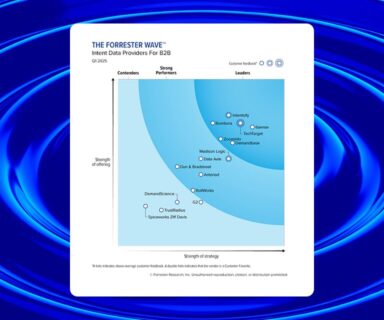 As an early-career B2B content marketer and writer, I’ve spent many hours examining research reports, listening to expert panels, and generally staying on top on MarTech industry news. I’m constantly learning and am nowhere near being an expert.
As an early-career B2B content marketer and writer, I’ve spent many hours examining research reports, listening to expert panels, and generally staying on top on MarTech industry news. I’m constantly learning and am nowhere near being an expert.
We all have to start somewhere. And at this early stage, the challenge is to develop a complete understanding of a topic quickly, so I can get to developing content and sharing it with my audience.
So, what do I do when I need to get up-to-speed on a topic fast? Here’s a few tried-and-true strategies I use to create valuable, insightful content, even as a novice.
#1 – Use Your Network as Guides
The digital world is an endless resource and it can be overwhelming if you don’t know exactly what you’re looking for. Rather than getting lost in the many rabbit holes of the internet, ask a few colleagues (both peers and the more experienced) what sources they rely on for industry insights. This could be traditional sources, like publications or analysts, or more modern ones, like a LinkedIn personality. They might even recommend a related report or article specific to the topic you’re writing about.
#2 – Interview an Expert Friend
Just because you need to write about a topic, doesn’t mean you have to have to come up with everything on your own. Find an expert on the subject matter to help provide context in a 30-minute conversation. If you already have a content concept in mind, consider preparing specific questions to ask. Or, if you’re still working out the angle, let the conversation be free flowing, which will allow themes or key points bubble up to the surface and spark ideas for new content. If your expert is comfortable with it, record your conversation. Journalists record interviews for a reason – even if you’re a fast typist, you’ll have pieces you want to revisit later. Personally, I find that recording takes the pressure off, so I can better engage in and absorb the conversation.
#3 – Quiz Yourself
A new method I’ve begun to use to better internalize new information is to discuss it with a peer, manager or friend. This is most effective once you’ve completed some general research and have a sense of what the story arc will be. In practice, this looks something like an informal discussion (think about how you’d explain the topic to a friend or family member). Don’t get bogged down in every last detail. Instead, touch upon the key points you’re trying to communicate in the content. Try to talk through it without any notes or outlines in front of you. It may feel awkward at first but will help you internalize the topic quickly. Your listening partner can also flag areas that may be disjointed or unclear.
There’s no true replacement for the time and experience experts have collected in their back pocket. But when it comes to writing about a topic, you don’t always need to be an expert. If you can develop a comprehensive understanding on a subject, you can clearly interpret and discuss it in your writing and with your audience.




